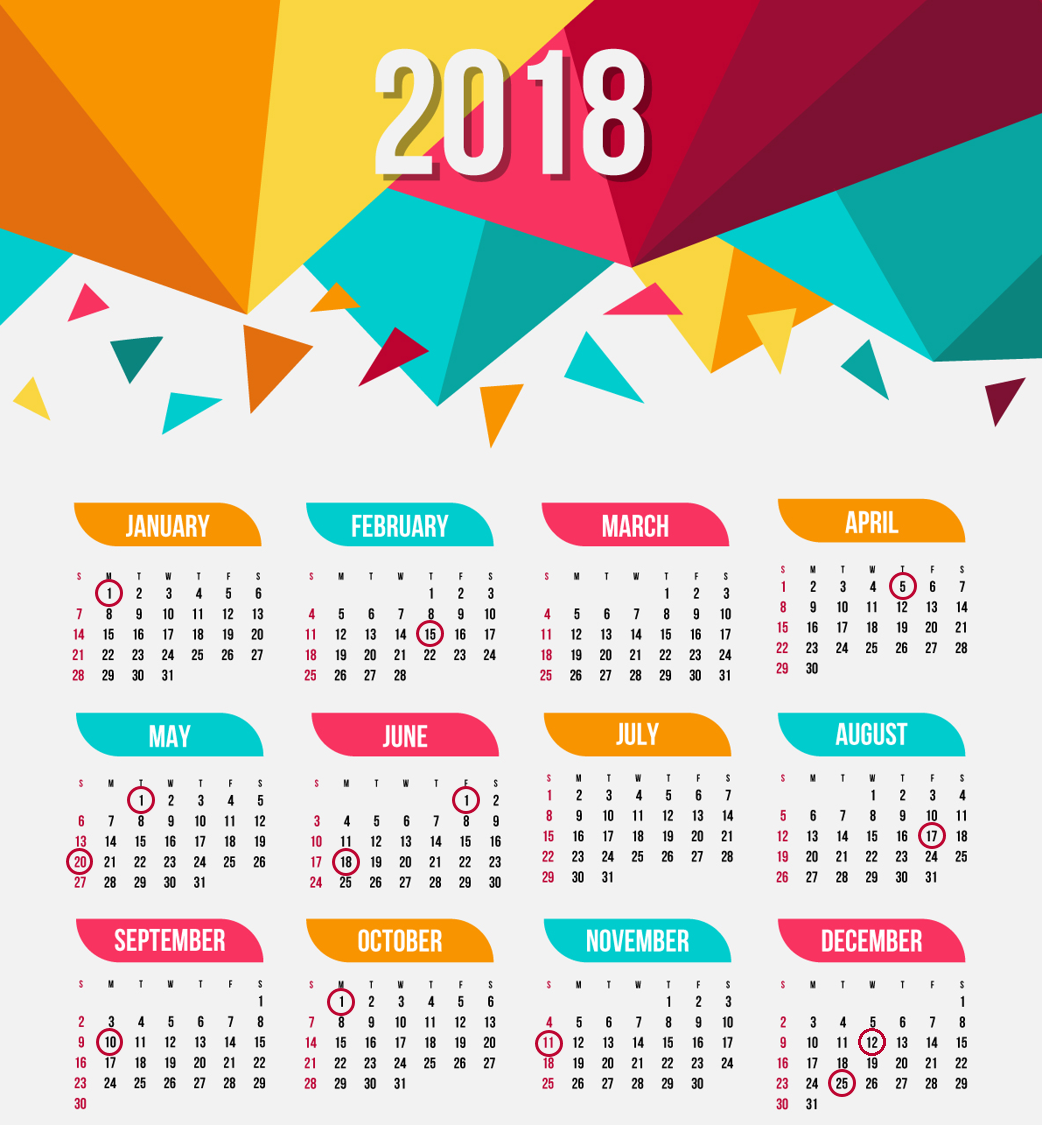
1st of January: New Year
New Year celebrated in the night of December 31st and January 1st is not particularly important, compared to other national holidays in China. But as younger generations in China enjoy celebrating New Year more than their parents do, there are some ecommerce opportunities. We recommend you to use this occasion to bond with your customers by thanking them for their support throughout the year. Launch for example New Year promotions to clear up your excessive inventories, preferably with special deals for loyal customers. Since the younger generations usually celebrate New Year with friends at (corporate) parties, fashion and beauty products will attract the most attention.
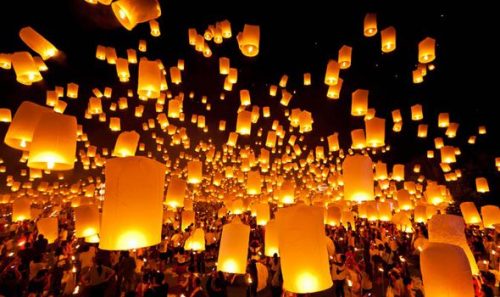
15th of February: Chinese New Year (Spring festival)
Chinese New Year – also referred to as Spring Festival – is the most important holiday in China. Everyone travels back to their hometown to spend time with family and friends and eat traditional food. It is tradition that children receive ‘Hongbao’ from family members, which is a red envelop filled with pocket money. These Hongbao are often combined with other gifts, especially since online shopping has increased in China over the past few years. Food and beverages are the most common gift in this period, closely followed by electronics and games. The youngest family members receive toys as gift, and healthcare products (such as nutrition supplements) are often bought for the elderly. The travel industry is also extra popular during this time of year, as more and more families are traveling long distances during the Spring Festival.
In order to respond adequately to this festival, it is wise to plan your campaigns on time and organize your inventory in advance. A fact you might want to consider whilst planning your campaign, is that the older generations are often in charge of preparing food and gifts. As the elderly are often less familiar with online shopping than the younger generations, sending offline catalogues is a good way to boost offline sales. And lastly, you should be prepared to invest in delivery, as customers are very keen on receiving their holiday gifts and supplies on time.
5th of April: Tomb sweeping day
Every year in early April, Chinese people commemorate their ancestors by visiting and maintaining their graves and burning “sacrificial money” in honour of the dead. Nowadays, the festival has evolved into an occasion for people to go on short-distance trips and thus for brands to coordinate promotional campaigns accordingly. Promotions for this holiday usually start around the middle of March. In terms of products, especially promotions of short-distance travel packages, travel-related products and sportswear are likely to bring additional traffic.
1st of May: labour day
Labour Day in China is a cheerful family holiday in which fun activities are planned and people travel around the country. From a marketing perspective, comprehensive campaigns that include free shipping, promotion codes and discounts to promote your products are recommended.
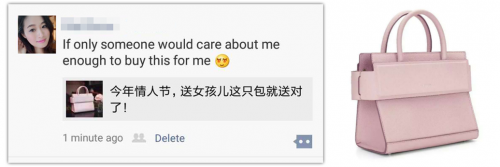
20th of May: Wo Ai Ni
May 20, shortened as “520”, is celebrated as Valentine’s day in China, as the combination of numbers sounds phonetically the same as I (5) love (2) you (0) in Chinese. Different from traditional holidays such as Chinese New Year and Dragon Boat Festival, this Valentine’s Day was recently invented by Chinese netizens and is celebrated mostly by young adults and millennials. As Valentine’s Day is based on the tradition of men showing their love for women through gifts, the best audience for marketers to target are men born post ‘80s and ‘90s searching for the perfect gift for their women. During preparations for this holiday, especially promotional campaigns featuring fashion and cosmetic products are well received.
1st of June: Children’s day
Whereas in European countries children have either Santa Claus or Saint Nicolas from whom they can wish everything their heart desires, Chinese children ask for their dream gifts on Children’s Day. Although the majority of parents buy their gifts online, it is not uncommon for parents to take their children to the store to choose their own gifts. From a marketing perspective, it is therefore important to integrate online and offline strategies and to make sure all your school-related products, infant products and toys are included in your promotions. It will help your marketing campaign to emphasize the fact that your products are being imported from western countries, as Chinese parents associate this with good quality.

18th of June: Dragon boat festival
Although there are many explanations for the origin of the Dragon Boat Festival, the most communicated explanation nowadays is that the Dragon Boat Festival is held in memory of the ancient Chinese poet Qu Yuan, who drowned in the Miluo River in the 3rd century BC. The story goes that locals raced out in their boats to save him, and when they couldn’t find him, dropped rice dumplings in the water to attract the fish so that his body would not be eaten. During the Dragon Boat Festival, Dragon Boat races and the eating of ‘Zongzi’ (traditional rice dumplings) are important traditional activities.
Like many Chinese festivals, the giving of gifts is a key part of the celebrations during the Dragon Boat Festival and for brands a great marketing opportunity. For foreign food retailers, Dragon Boat Festival is an excellent opportunity to innovate upon traditional food. Starbucks, for example, combined the shape of the traditional Zongzi with stuffed ice cream and rolled it out during the festival.
17th of August: Valentine’s day (Double Seventh)
Double Seven Festival – falling on the seventh day of the seventh lunar month – is to the Chinese what Valentine’s Day is to western countries. For those of you paying close attention, it is indeed the case that in China Valentine’s Day is celebrated twice per year. From a marketing perspective, there is no substantial difference between both Valentine’s Days. Just make sure you don’t run exactly the same promotional campaign twice, as Chinese youngsters will notice and worse – get bored.
10th of September: Teacher’s day
Teachers are highly respected and honoured in China, which is why on the 10th of September, festive events are held throughout China in honour of educational specialists. The main purpose of introducing Teacher’s Day as an official public holiday was the desire of Chinese authorities to increase the prestige of the profession. On this day, students give their teachers small gifts to show their gratitude. As expensive gifts are inappropriate to give to teachers, make sure you feature non-expensive gifts such as cards, chocolates and flowers in your campaign.
1st of October: National Day
Every year on the 1st of October, China celebrates the anniversary of Mao Zedong’s great victory against the Kuomintang and the start of a new era in the history of China. Over the course of five days, the country holds different celebrational ceremonies, festivals, street performances and fireworks shows. There are no specific event-related marketing opportunities, but it’s not uncommon for brands to use the warm-up to the event for an all-round campaign promoting their products. Similar to Labour Day, National Day is a great opportunity to run a comprehensive campaign including free shipping, promotion codes, and discounts to promote your brand.
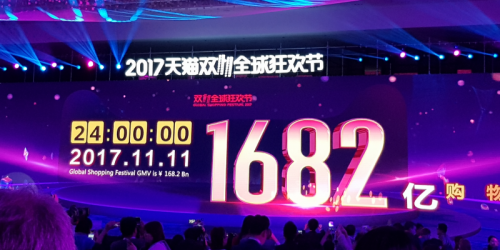
11.11 Single’s Day
Double Eleven, Single’s Day, or just the 11th of November – no matter what you call it, it is the ecommerce highlight of the year. People start shopping days before the actual date, and wait until 00:00 to pay for everything piled up in their shopping carts. Once ‘invented’ as a designated day for China’s bachelors, 11.11 later morphed into an event to celebrate all single life. In 2011, Alibaba made it into the record breaking ecommerce festival as we know it today. And with a total spending of 162.2 billion yuan this year, single life was celebrated well!
If you want to participate in the 11.11 madness – and we think you should – be sure to realise it takes more than just throwing up a promotion on Tmall. With 140.000 brands promoting 15 million products during the festival, smart marketing tactics are necessary to convince Chinese consumers to buy your products. Invest in engaging promotions, such as key Opinion Leaders (KOLs) running lucky draws with your product, to create a buzzing image around your brand rather than only giving discounts. And one last piece of advice: make sure you invest in delivery, as common issues occurring during 11.11 are slow delivery and lost packages.
12th of December: 12.12
Like Double Eleven, December 12 is a ‘Shopping Holiday’ invented by the Alibaba group. Whereas Double 11 seems to be firmly grounded in B2B and B2C markets, Double 12 focusses on the online to offline (O2O) market. Essentially, O2O aims to stimulate the demand for products online and to translate that demand into actual purchases in physical stores. During the warm-up to the event, brands often send promotions via Alipay wallet offering discounts in participating stores. By offering special O2O commerce deals at stores, brands aim to drive consumers to physical stores they otherwise probably wouldn’t have visited. Ecommerce giants like Taobao and JD.com offer deals as well, but the focus of the event centres more around activities outside, such as eating out, going to the movies, and, of course, shopping at the mall.
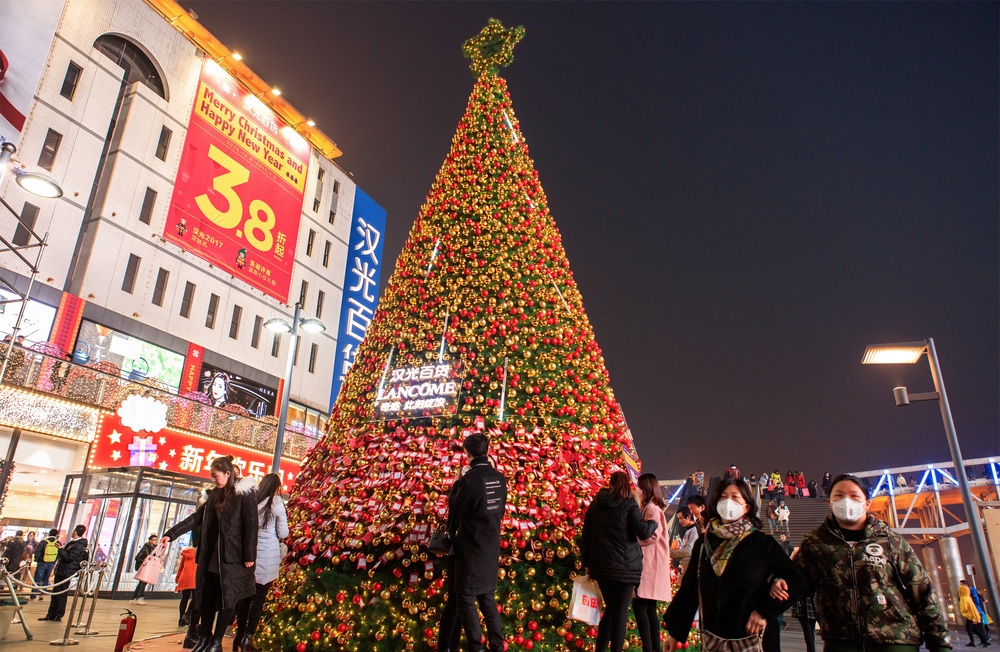
25th December Christmas
Although Christmas is not a traditional Chinese holiday, it is becoming more popular among the younger Chinese generations. That is why it deserves a spot on the China e-commerce calendar. Couples tend to celebrate Christmas as a romantic occasion, and friends exchange gifts for fun. As Christmas in China is more interpreted as a fashion festival rather than a family gathering, make sure your campaigns look trendy and luxurious. Imported goods sell best during this time of year, as well as luxury goods.
What to do now?
As you might have already noticed, there are more ecommerce holidays than you can count on both hands. This China e-commerce calendar is definitely not meant to convince you to participate in all these shopping festivals. We highly recommend to choose the holiday(s) that fit your brand’s message best, and forget about all the other days. There are more ways to reach the Chinese consumers’ hearts than running promotions and giving discounts. If you’re not sure which ways, we at AgencyChina would love to hear about your brand and help you determine how to promote your products in China.



